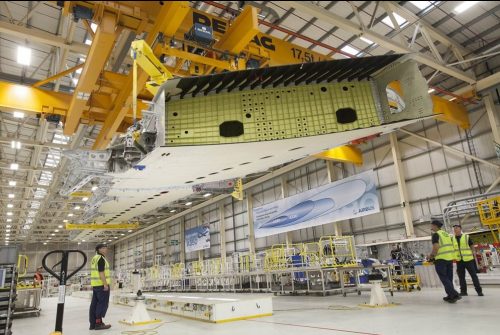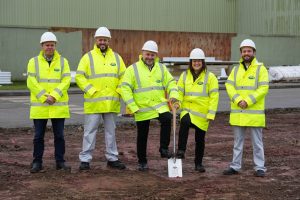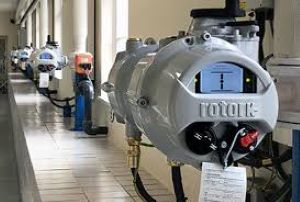Airbus reports strong first quarter demand but sales and earnings decline

Aircraft manufacturer Airbus first quarter results showed strong demand for its products but falls in both revenues and EBIT levels.
The group employs around 4,000 staff at its plant in Filton, near Bristol, where they work wings and landing gear.
Consolidated revenues in the quarter fell slightly to £10.3bn, compared with £10.5bn in the same period a year ago.
Reported EBIT suffered a 73 per cent slump, from £1,258 the previous year, to £343m.
The decrease reflects lower deliveries, a slightly less favourable hedge rate compared with Q1 2022 and investments for the future. Q1 2022 included the positive impact from retirement obligations partly offset by the impact resulting from international sanctions against Russia.
A total of 127 commercial aircraft were delivered in the quarter (Q1 2022: 142 aircraft), including 10 A220s, 106 A320 Family, six A330s and five A350s.
Revenues generated by Airbus’s commercial aircraft activities decreased five per cent year-on-year, mainly reflecting the lower deliveries, partly offset by the strengthening of the US dollar.
Airbus Helicopters deliveries increased to 71 units (Q1 2022: 39 units), mainly driven by the light helicopter segment. The division’s revenues rose 26 per cent, mainly reflecting deliveries and a solid performance across programmes, favourable mix effects as well as a good start to the year in services.
Revenues at Airbus Defence and Space decreased six percent, mainly driven by lower volume in Military Air Systems and in Space Systems. One A400M transport aircraft was delivered in Q1 2023.
Gross commercial aircraft orders totalled 156 (Q1 2022: 253 aircraft), with net orders of 142 aircraft after cancellations (Q1 2022: 83 aircraft).
The order backlog amounted to 7,254 commercial aircraft at the end of March 2023. Airbus Helicopters registered 39 net orders (Q1 2022: 56 units) which were well spread across programmes. Airbus Defence and Space’s order intake by value was £2.2bn (Q1 2022: £2.8bn).
The ramp-up on the A220 programme is continuing towards a monthly production rate of 14 aircraft by the middle of the decade.
On the A320 Family programme, the company continues to ramp-up towards a monthly production rate of 65 aircraft by the end of 2024.
The recently announced decision to add a second final assembly Line in Tianjin will increase global industrial capacity to 10 final assembly lines for the A320 Family, supporting Airbus’s plans to produce 75 aircraft per month in 2026. The flight test programme of the A321XLR is progressing and entry-into-service is expected to take place in Q2 2024.
The company’s 2023 guidance, before M&A, is 720 commercial aircraft deliveries, EBIT adjusted of £5.28bn, free cash flow before M&A.
Guillaume Faury, Airbus chief executive, said: “The first quarter confirmed strong demand for our products, particularly for commercial aircraft. We delivered 127 commercial aircraft, which is reflected in the Q1 financials.
“The quarter also benefited from a good performance in helicopters.”
He added: “We continue to face an adverse operating environment that includes, in particular, persistent tensions in the supply chain. Our 2023 guidance is unchanged with commercial aircraft deliveries expected to be backloaded. We remain focused on delivering the commercial aircraft ramp-up and longer term transformation.”








